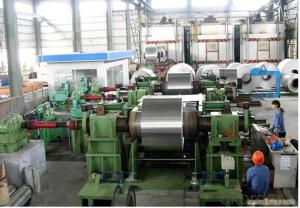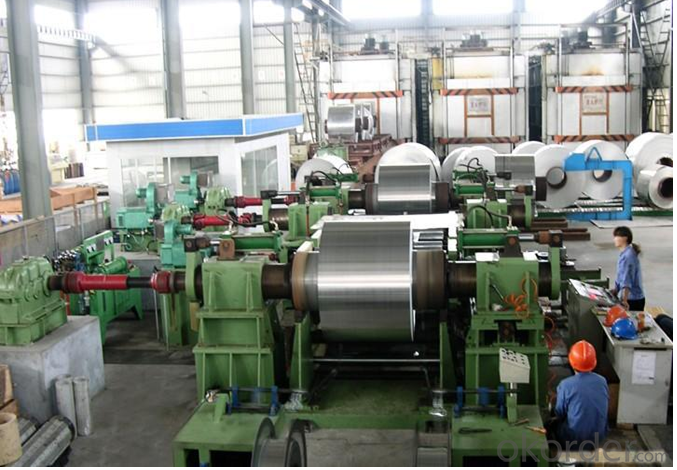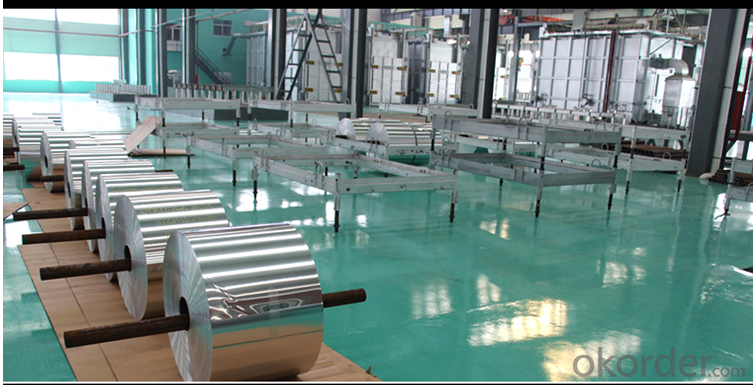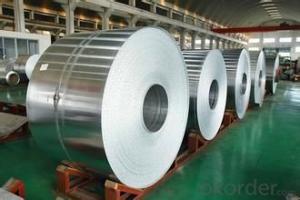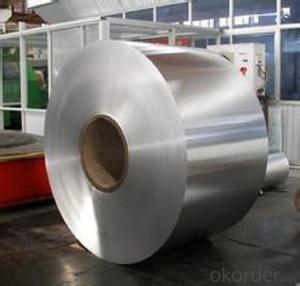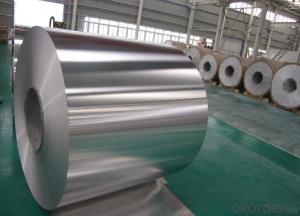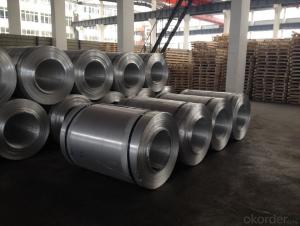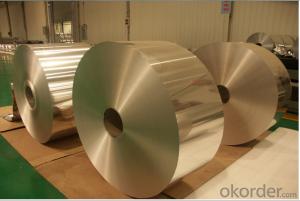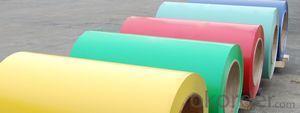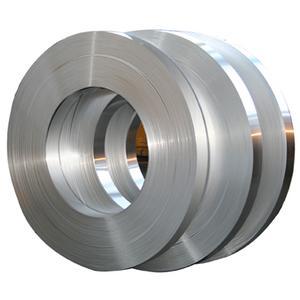High Quality Black Aluminum Coil Temper 1070
- Loading Port:
- China main port
- Payment Terms:
- TT OR LC
- Min Order Qty:
- 10 m.t.
- Supply Capability:
- 1000 m.t./month
OKorder Service Pledge
OKorder Financial Service
You Might Also Like
Specification
Description of Aluminium Coil
5000 series aluminium alloy sheet: 1070 aluminium alloy sheet are representative in the 5000 series of aluminium sheet. The 5000 series aluminium sheet is the more commonly used aluminum alloy sheet series, the main elements is magnesium, also it can be called Al-Mg alloy. The 5000 series aluminium alloy sheet main feature is low density, high tensile strength, high elongation, etc. In the same area under the weight of aluminum-magnesium alloy is lower than other series, so the 5000 series aluminium alloy sheet is often used in aviation, and it are also widely used in the conventional industry.
Alloy | Thickness(mm) | Width(mm) | Length(mm) | Temper | DC or CC | |
1050,1060,1070,1100, 1235 | 0.2-3.0 | 300-1850 | 1000-8000 | O,H12,H22,H14,H24,H16,H26,H18,H32 | DC, CC | |
3.0-150 | 900-1900 | H112,H111 | DC | |||
3003,3004,3105,3005 | 0.2-3.0 | 300-1850 | 1000-8000 | O,H12,H22,H14,H24,H16,H26,H18,H32 | DC, CC | |
3.0-150 | 900-1900 | H112,H111 | DC | |||
5052,5083,5754,5005 | 0.2-3.0 | 300-1850 | 1000-8000 | O,H12,H22,H14,H24,H16,H26,H18,H32,H36 | DC | |
3.0-150 | 900-1900 | H112, H111 | DC | |||
6061,6063 | 0.5-3.0 | 300-1500 | 1000-6000 | T6,T321 | DC, | |
The Main Features of Aluminium Coil:
High quality with competive prices.
Wide product range of choice.
We are specific manufacture and control.
The Images of Aluminium Coil:
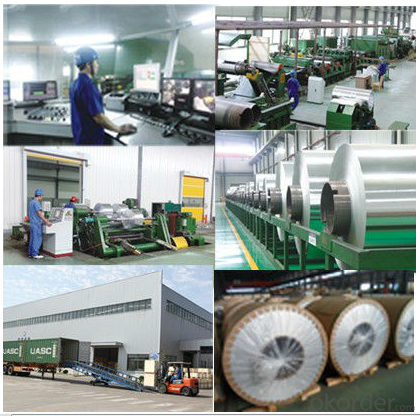
FAQ:
1. Minimum Order Quantity? MOQ is 25 tons, your quantity is ok, the aluminium foil sample is available. |
2. What kind of terms of payment? T/T, L/C,D/A,D/P,Western Union are available. |
3. What grams of the product can you offer? Our products can be customized according to your requirment |
4.Can you do Customization & Reproduction if I provide a photo? Yes, we do Customization & Reproduction service, please check the details and sample above. You need to send the pictures to our email, tell us the specification you want, then we will quote you exact price. We will take photos for you check. |
5. Does the packaging safe and arrive in good conditions? Yes, Safe Packing guarrantee, all the products will arrive your door under good conditions. We response to problem of shipping if there unfortunately is. |
6. How long does it usually take to deliver the product? We'll make the shipment to you immediately. It will take about 18 to 40 days arrive worldwide. Accurate delivery time depends on the specific quantity |
7.Is drop shipping abailable? Yes, it is, we can send to worldwide. |
- Q: How are aluminum coils used in the production of transportation vehicles?
- Aluminum coils play a vital role in manufacturing transportation vehicles, especially cars and planes. These coils are typically made from high-quality aluminum alloys because they are lightweight, strong, and resistant to corrosion. In the automobile industry, aluminum coils are primarily used to build vehicle bodies, including the frame, doors, hoods, and trunk lids. The lightweight nature of aluminum helps reduce fuel consumption and improve energy efficiency. This makes it a preferred choice for vehicle manufacturers who want to meet environmental regulations and improve fuel economy. Aircraft manufacturing also relies on aluminum coils to reduce weight and ensure optimal flight performance. By incorporating aluminum coils into key components like fuselages, wings, and engine parts, aircraft manufacturers can save a significant amount of weight without compromising structural integrity and durability. The use of aluminum coils in transportation vehicles also contributes to improved safety standards. Aluminum's ability to absorb crash energy makes it an ideal material for manufacturing impact-absorbing structures, such as bumpers and crash boxes in cars. This provides enhanced protection for passengers during collisions. Furthermore, aluminum coils have excellent heat dissipation properties, reducing the risk of engine and other critical system overheating. This is particularly beneficial for high-performance vehicles, where efficient cooling is essential for maintaining optimal operating conditions. In conclusion, aluminum coils are extensively used in the production of transportation vehicles due to their lightweight, strong, corrosion-resistant, and thermally conductive properties. By incorporating aluminum coils into vehicle manufacturing, the automobile and aircraft industries can achieve weight reduction, improved fuel efficiency, enhanced safety, and superior performance. This allows them to meet evolving market demands and sustainability goals.
- Q: Is it possible to use an aluminum coil as a paperweight for holding down papers?
- <p>Yes, you can use an aluminum coil as a paperweight. Aluminum is a lightweight and sturdy metal that can effectively hold down papers on a desk. Its weight and shape make it suitable for this purpose. However, ensure the coil is clean and smooth to avoid any damage to the papers or surfaces it comes into contact with. Additionally, consider the size and thickness of the coil to ensure it provides enough weight to keep your papers in place.</p>
- Q: This question asks about the common applications of aluminum coil in everyday life.
- <p>Aluminum coil is widely used in daily life due to its lightweight, corrosion resistance, and thermal conductivity. It's commonly used in construction for roofing and siding, in the automotive industry for car parts, and in the packaging industry for food and beverage cans. It's also used in electrical applications like transformers and wiring due to its good conductivity. In the kitchen, aluminum foil is used for cooking and food storage, and in the HVAC industry for heat exchangers and ductwork. Its versatility makes aluminum coil an essential material in many industries and everyday applications.</p>
- Q: What types of aluminum coils are there that are designed for particular applications?
- <p>Yes, there are various types of aluminum coils designed for specific purposes. For instance, there are coils for construction, which are often used for roofing and siding. Coils for automotive applications are used in manufacturing car parts. Reflective coils are ideal for heat reflection in industries like food processing. Coils for electrical applications are used in transformers and wiring. Each type has specific properties like thickness, strength, and surface finish tailored to meet the requirements of their respective industries.</p>
- Q: Is it possible to utilize a press machine to bend aluminum coils?
- <p>Yes, you can use a press to bend aluminum coils. Presses are versatile machines capable of bending various materials, including aluminum. However, it's crucial to select the appropriate press type and size for the specific coil dimensions and desired bend. Additionally, ensure the press has the necessary tonnage to handle the bending force required for aluminum. Using the right dies and lubrication can also improve the bending process and prevent damage to the coils. Always follow safety guidelines and consult with equipment specifications to ensure the press is suitable for bending aluminum.</p>
- Q: could you please help me find information of the element aluminum??? all the information i can get will be great... thanks very mucho.... who discovered? where can i find pictures of it?
- hi ive found this: Aluminium is a silvery white member of the boron group of chemical elements. It has the symbol Al and its atomic number is 13. It is not soluble in water under normal circumstances. Aluminium is the most abundant metal in the Earth's crust, and the third most abundant element, after oxygen and silicon. It makes up about 8% by weight of the Earth's solid surface. Aluminium is too reactive chemically to occur in nature as a free metal. Instead, it is found combined in over 270 different minerals.[5] The chief source of aluminium is bauxite ore. Aluminium is remarkable for the metal's low density and for its ability to resist corrosion due to the phenomenon of passivation. Structural components made from aluminium and its alloys are vital to the aerospace industry and are very important in other areas of transportation and building. Its reactive nature makes it useful as a catalyst or additive in chemical mixtures, including ammonium nitrate explosives, to enhance blast power. Aluminium is a soft, durable, lightweight, ductile and malleable metal with appearance ranging from silvery to dull gray, depending on the surface roughness. Aluminium is nonmagnetic and nonsparking. It is also insoluble in alcohol, though it can be soluble in water in certain forms. The yield strength of pure aluminium is 7–11 MPa, while aluminium alloys have yield strengths ranging from 200 MPa to 600 MPa.[6] Aluminium has about one-third the density and stiffness of steel. It is easily machined, cast, drawn and extruded.
- Q: What are the methods to prevent rust formation on steel coils during storage and transportation?
- <p>To prevent rust on steel coils during storage and transportation, follow these steps: 1. Keep the coils dry and avoid exposure to moisture. 2. Use rust inhibitors or anti-corrosion coatings on the coils. 3. Store the coils in a clean, dry, and well-ventilated area. 4. Use protective wrapping materials like plastic film or corrosion-resistant paper. 5. Ensure proper stacking and avoid direct contact between coils. 6. Use rust-resistant materials for transportation containers. 7. Regularly inspect the coils for signs of rust and address any issues promptly. By implementing these measures, you can significantly reduce the risk of rust formation on steel coils.</p>
- Q: I heard that one pound of aluminum pop tabs are worth more then a pound of aluminum pop cans. Is this true? Thank you.
- yup.. but not to you. You get the same ammount turning in the tabs as you would the whole can. They can process the tabs faster and more efficently due to lack of extra printed on them.
- Q: Can aluminum coils be used for food storage containers?
- Indeed, food storage containers can be made from aluminum coils. Aluminum is widely chosen as a material for such containers because of its numerous advantageous qualities. Notably, it is lightweight, sturdy, and possesses exceptional thermal conductivity, enabling it to distribute heat evenly for effective cooking or cooling purposes. Moreover, aluminum is non-toxic, devoid of odor, and resistant to corrosion, rendering it a secure option for food storage. Additionally, it acts as a proficient shield against light, moisture, and oxygen, thereby assisting in maintaining the freshness and quality of the stored food. All in all, opting for aluminum coils for food storage containers can be a dependable and practical decision.
- Q: i am thnking of building my own aluminum john boat and using the propulsion from a jetski to power it, i was wondering if anyone had taken on a project like this and had a few pieces of advice to offer while i am still in the planning stages. the biggest concern i have right now involves the tunnel for the intake, should i use the original fiberglass from the jetski or build up a tunnel out of aluminum for it?
- 518 okorder /
Send your message to us
High Quality Black Aluminum Coil Temper 1070
- Loading Port:
- China main port
- Payment Terms:
- TT OR LC
- Min Order Qty:
- 10 m.t.
- Supply Capability:
- 1000 m.t./month
OKorder Service Pledge
OKorder Financial Service
Similar products
Hot products
Hot Searches
Related keywords
